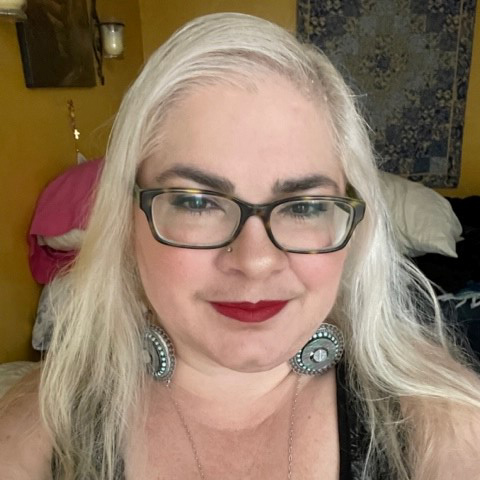
Ryan Drew – Director, Integrated Services for Newcomers
Ryan Drew started her journey with the S.U.C.C.E.S.S. team back in 1999 as a part-time language instructor. By 2006, Ryan was invited to join the team full-time and has since held a variety of positions. In 2018, she was appointed to her current role, Director of Integrated Services for Newcomers.
S.U.C.C.E.S.S. is the only organization in Canada that has a full range of settlement services, this includes our pre-arrival services, port of entry services at YVR and then post-arrival services. Ryan manages the integration of the diverse range of S.U.C.C.E.S.S. services and facilitates communication between departments. Ryan is always looking for new ways to foster collaborative teamwork so S.U.C.C.E.S.S. can provide wrap-around supports for all clients.
During her 23 years at S.U.C.C.E.S.S. Ryan has had the opportunity to work with S.U.C.C.E.S.S. staff in various capacities, today she describes her team members as family. When asked about why she has stayed with the organization for so long, she states that when you work at S.U.C.C.E.S.S., “not only do we get to have an impact on individual lives, but we have an impact on the entire community.”
One of the highlights of her S.U.C.C.E.S.S. journey is during the pandemic, Ryan was involved in facilitating a series of learning opportunities for staff surrounding anti-racism, bystander training, and anti-oppressive communication.
Gregory Moskos – Language Lead, ISIP
Gregory’s journey at S.U.C.C.E.S.S. starts in October 2014 as an English teacher. In 2019, he became a Language lead at the Fraser office, drawing on his teaching experience to mentor the team to create lessons for the students. Gregory makes sure that everything at the office runs smoothly in order to deliver effective classes and avoid overwhelming situations at work.
Being in a management position has taught Gregory how to engage with his team to serve them better despite working remotely, looking for the human touch is important to not make them feel isolated. He believes, “offices are not machines, they are houses of humans. Things are always changing, and the challenge is to be creative finding a way to make things better.”
Gregory describes his S.U.C.C.E.S.S. experience as a learning process where he is free to try new things and encouraged to implement changes. The community building inspires him daily, and S.U.C.C.E.S.S. has opened his eyes to learn and talk more about diversity and decolonization.
“The organization cares about me and wants to retain me,” Gregory says, referring to the different trainings he’s had such as conflict resolution which he has applied to his professional and personal life. On top of it, the employee benefits are excellent, “I can address health issues as needed,” and the paid time off is great, no questions asked.”
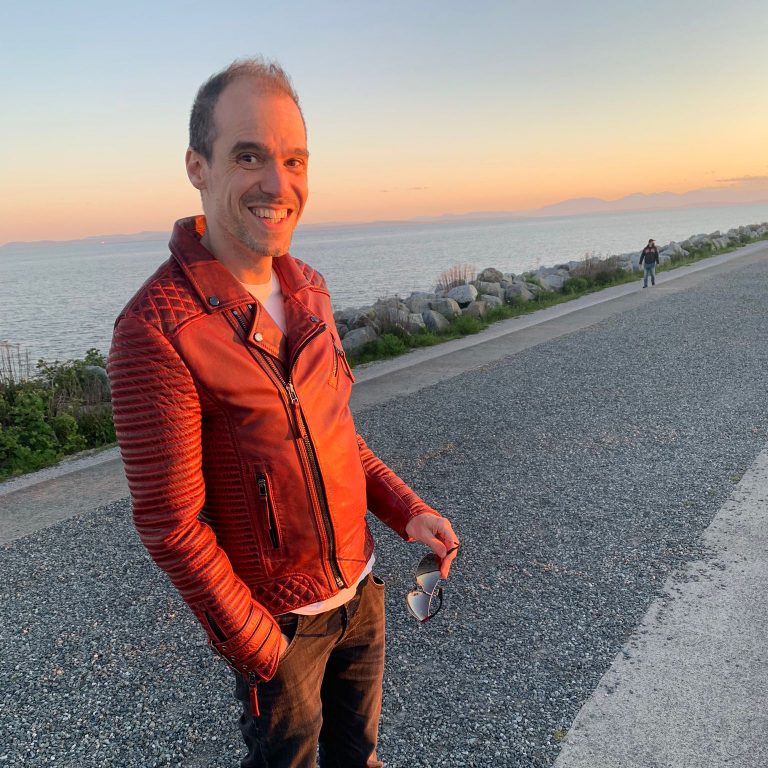

Dorna Ostovarkashkooli – Project Facilitator Wellness & Active Communities
Dorna started her relationship with S.U.C.C.E.S.S. when immigrated to Canada as a client in the Immigrant Settlement and Integration Program at the Burnaby location. After volunteering for three years at the front desk and helping to run events, in November 2021, Dorna became a full-time Project Facilitator at S.U.C.C.E.S.S. on his role, she organizes workshops, and education material related to health particularly COVID-19 and dementia in different languages, particularly for the Farsi community is challenging to find community services on these topics.
The friendly, multicultural and supportive environment at work meeting newcomers inspires her to give back while improving her skills and increasing her network, “specifically immigrants who I want to help with my knowledge and skills because I got help.” Dorna emphasised.
Dorna calls her experience working at S.U.C.C.E.S.S., “miraculous,” particularly in those moments when despite the language barriers, people communicate through their body language. Dorna acknowledges that she has supportive managers and says the work-life balance culture inspires her to go to work knowing that at S.U.C.C.E.S.S. everybody is equal. As she says, “S.U.C.C.E.S.S. is a place to learn from each other and understand other cultures.”
Knowing S.U.C.C.E.S.S. from the inside out and playing different roles, Dorna has developed different skills that today, as a Project Facilitator, are helping the community by sharing trusted information to support the wellbeing of her clients “when we help our clients, we also learn from them.” Dorna concludes.

Ryan Drew started her journey with the S.U.C.C.E.S.S. team back in 1999 as a part-time language instructor. By 2006, Ryan was invited to join the team full-time and has since held a variety of positions. In 2018, she was appointed to her current role, Director of Integrated Services for Newcomers.
S.U.C.C.E.S.S. is the only organization in Canada that has a full range of settlement services, this includes our pre-arrival services, port of entry services at YVR and then post-arrival services. Ryan manages the integration of the diverse range of S.U.C.C.E.S.S. services and facilitates communication between departments. Ryan is always looking for new ways to foster collaborative teamwork so S.U.C.C.E.S.S. can provide wrap-around supports for all clients.
During her 23 years at S.U.C.C.E.S.S. Ryan has had the opportunity to work with S.U.C.C.E.S.S. staff in various capacities, today she describes her team members as family. When asked about why she has stayed with the organization for so long, she states that when you work at S.U.C.C.E.S.S., “not only do we get to have an impact on individual lives, but we have an impact on the entire community.”
One of the highlights of her S.U.C.C.E.S.S. journey is during the pandemic, Ryan was involved in facilitating a series of learning opportunities for staff surrounding anti-racism, bystander training, and anti-oppressive communication.

Gregory’s journey at S.U.C.C.E.S.S. starts in October 2014 as an English teacher. In 2019, he became a Language lead at the Fraser office, drawing on his teaching experience to mentor the team to create lessons for the students. Gregory makes sure that everything at the office runs smoothly in order to deliver effective classes and avoid overwhelming situations at work.
Being in a management position has taught Gregory how to engage with his team to serve them better despite working remotely, looking for the human touch is important to not make them feel isolated. He believes, “offices are not machines, they are houses of humans. Things are always changing, and the challenge is to be creative finding a way to make things better.”
Gregory describes his S.U.C.C.E.S.S. experience as a learning process where he is free to try new things and encouraged to implement changes. The community building inspires him daily, and S.U.C.C.E.S.S. has opened his eyes to learn and talk more about diversity and decolonization.
“The organization cares about me and wants to retain me,” Gregory says, referring to the different trainings he’s had such as conflict resolution which he has applied to his professional and personal life. On top of it, the employee benefits are excellent, “I can address health issues as needed,” and the paid time off is great, no questions asked.”

Dorna started her relationship with S.U.C.C.E.S.S. when immigrated to Canada as a client in the Immigrant Settlement and Integration Program at the Burnaby location. After volunteering for three years at the front desk and helping to run events, in November 2021, Dorna became a full-time Project Facilitator at S.U.C.C.E.S.S. on his role, she organizes workshops, and education material related to health particularly COVID-19 and dementia in different languages, particularly for the Farsi community is challenging to find community services on these topics.
The friendly, multicultural and supportive environment at work meeting newcomers inspires her to give back while improving her skills and increasing her network, “specifically immigrants who I want to help with my knowledge and skills because I got help.” Dorna emphasised.
Dorna calls her experience working at S.U.C.C.E.S.S., “miraculous,” particularly in those moments when despite the language barriers, people communicate through their body language. Dorna acknowledges that she has supportive managers and says the work-life balance culture inspires her to go to work knowing that at S.U.C.C.E.S.S. everybody is equal. As she says, “S.U.C.C.E.S.S. is a place to learn from each other and understand other cultures.”
Knowing S.U.C.C.E.S.S. from the inside out and playing different roles, Dorna has developed different skills that today, as a Project Facilitator, are helping the community by sharing trusted information to support the wellbeing of her clients “when we help our clients, we also learn from them.” Dorna concludes.
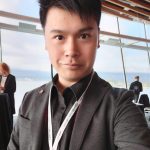
When Harrison’s family immigrated from China in 1994 S.U.C.C.E.S.S. provided them with assistance. So, years later, when he saw the opportunity to work here when a role opened during the pandemic, he went for it.
In his role, Harrison draws from his experience in the private sector to create best practices to drive engagement internally, building trust and connection to make others aware that S.U.C.C.E.S.S. as a reputable employer that cares. “Every day there is something new, a new challenge to address, when working in the private sector I was behind the scenes, whereas at S.U.C.C.E.S.S. you are part of the improvements,” he says.
Harrison treasures the flexibility of the organization, particularly while he was adapting to a new place and sector while working remotely. The outcome of this experience has been one of his biggest achievements: the new hybrid policy which is “adaptable for everybody and maximizes resources.”
As a mid-career professional in the HR field, working at S.U.C.C.E.S.S. has allowed Harrison to challenge himself in a supporting environment. He shares that at S.U.C.C.E.S.S., maybe you end up taking a position you never imagined, because you discover new career opportunities adding value to your professional development. “If you want to work with talented people that really care,” Harrison says, “this is your place.”
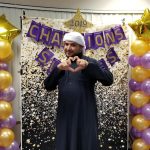
Waleed was inspired by his experience as a refugee from Iraq to support other newcomers making their life easier until they become citizens as a volunteer for S.U.C.C.E.S.S. “I promised myself to give people the information they need,” he remembers, adding that working at S.U.C.C.E.S.S. is a “call to help others.”
In 2019, Waleed applied for the Settlement Practitioner role at S.U.C.C.E.S.S and now he supports the Arabic speaking community. He has also had the opportunity to support a broader audience with employment services, walking clients through their job-seeking journey, as well as providing resources to the LGBTQ2S+ community.
Waleed says his experience as a staff member working for a multicultural organization goes beyond a typical job description. “Here I never feel behind or less than,” he says. I’m part of a community that needs me because I make the difference.”
The training and the employee benefits allow Waleed to have the mind to be focused on finding solutions for his clients knowing his wellbeing is taken care of. The value of respect at S.U.C.C.E.S.S resonates with Waleed and it is an inspiration to his daily interaction at work: “If you want to have a purpose go to S.U.C.C.E.S.S.”
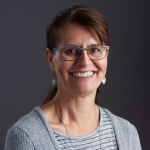
Crystal has explored three different positions at S.U.C.C.E.S.S. over her career. She started in direct client services seeing the progress and success of the clients. Then, as an English teacher she worked with students on developing their skills to get into different fields such health care, customer service and security.
Working as a teacher at S.U.C.C.E.S.S. she had the opportunity to meet different people and learn from different cultures. After 20 years of being an English teacher, Crystal was encouraged by a supervisor to become a Best Practice Coordinator in May 2021, launching her into a new challenge. “When I’m teaching newcomers,” Crystal says, “we have such a connection to get together and practice the language—learning never stops.”
Neither does the gratitude she receives from students—at the end of one term, a student wrote her a poem using pictures of flowers Crystal had shared as conversation starters. “It was beyond what I have received as a teacher,” she recalls.
When she had to move to Vancouver Island, S.U.C.C.E.S.S. flexed with her to permit remote work. “The future is working remotely and S.UC.C.E.S.S is very good at it,” she says. “Our hybrid model has shown this future is doable.” Crystal is grateful to be part of a workplace culture where everybody is “very helpful and generous with their time, they trust me to work on the assigned task—this gives me a lot of freedom.”